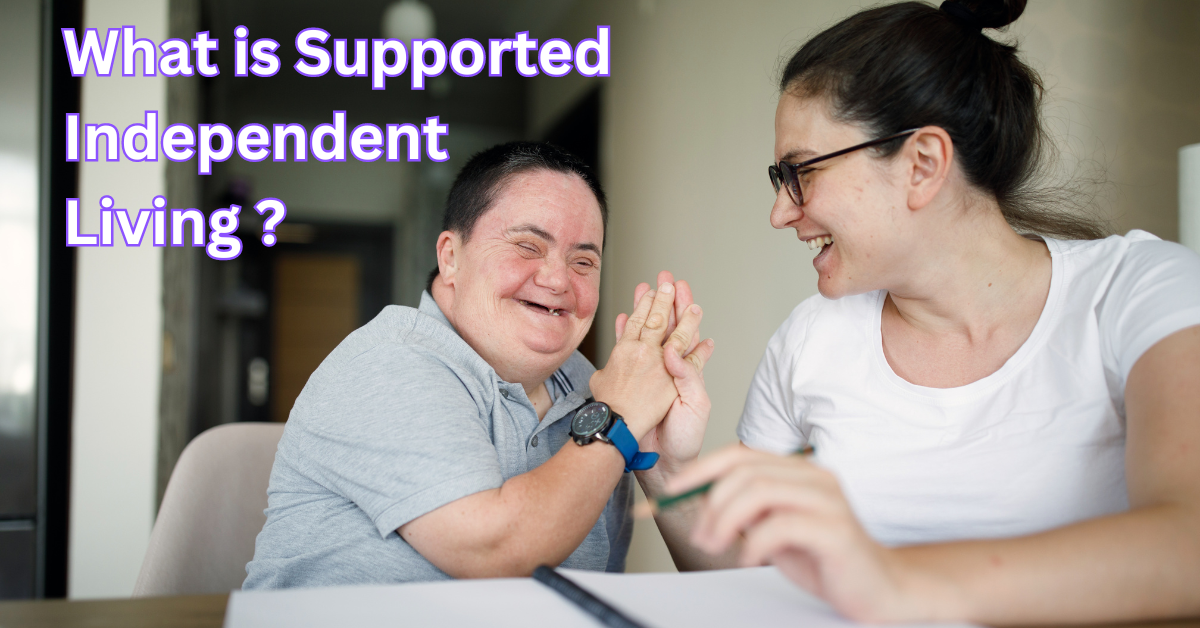Supported Independent Living (SIL) is a type of NDIS (National Disability Insurance Scheme) support designed to help people with disabilities live as independently as possible. It includes assistance with daily tasks, personal care, and other activities that enable participants to live in shared or individual accommodations. This service aims to enhance the quality of life, promoting autonomy and choice for individuals with disabilities.
Key Features of Supported Independent Living (SIL)
- Daily Living Support:
- Personal Care: Assistance with bathing, dressing, and grooming.
- Meal Preparation: Help with cooking and ensuring nutritional needs are met.
- Household Tasks: Support with cleaning, laundry, and other household chores.
- Skill Development:
- Life Skills: Training in managing money, cooking, and using public transport.
- Social Skills: Encouraging social interactions and community participation.
- Healthcare Management:
- Medication Management: Assistance in taking medications correctly.
- Health Monitoring: Regular check-ups and support in managing health appointments.
- Accommodation Options:
- Shared Living: Living with other participants in a shared environment.
- Individual Living: Living alone with support as needed.
How Does SIL Work?
SIL services are tailored to each participant’s needs, based on their NDIS plan. The NDIS funds the support, ensuring that each individual receives the appropriate level of care. The goal is to enable participants to live more independently and achieve their personal goals.
Benefits of SIL
- Independence: Participants gain more control over their lives and daily routines.
- Choice and Control: Individuals can choose their living arrangements and support providers.
- Community Inclusion: Encourages participants to engage with their community and build social connections.
- Quality of Life: Improves overall well-being by providing the necessary support to live comfortably and safely.
Marco Polo’s Role in Supported Independent Living
Marco Polo is revolutionizing the disability housing market through its innovative platform, the Marco Polo Portal. This app is designed to address the critical challenges faced by NDIS participants in finding suitable housing and compatible housemates.
How Marco Polo Enhances SIL
- Empowering Choice:
- Housemate Matching: Allows participants to choose their housemates based on compatibility, interests, and support needs, ensuring a harmonious living environment.
- Provider Selection: Participants can select from a pool of vetted, ethical providers, giving them more control over their support services.
- Reducing Administrative Burdens:
- Streamlined Processes: Simplifies the process for support coordinators and providers, reducing the time and effort needed to match participants with suitable housing and support.
- Supporting Smaller Providers:
- Equal Opportunities: Levels the playing field for smaller providers, giving them the opportunity to compete fairly and showcase their services.
- Enhancing Safety and Quality:
- Vetted Providers: Ensures that all providers are thoroughly vetted, maintaining high standards of safety and care for participants.
Conclusion
Supported Independent Living (SIL) is a vital component of the NDIS, aimed at promoting independence and improving the quality of life for people with disabilities. Marco Polo’s innovative platform further enhances SIL by empowering participants with choice and control, streamlining administrative processes, and ensuring high-quality, safe support services. For more information on how Marco Polo can help you or your loved ones achieve better living arrangements through SIL, visit Marco Polo’s website.


